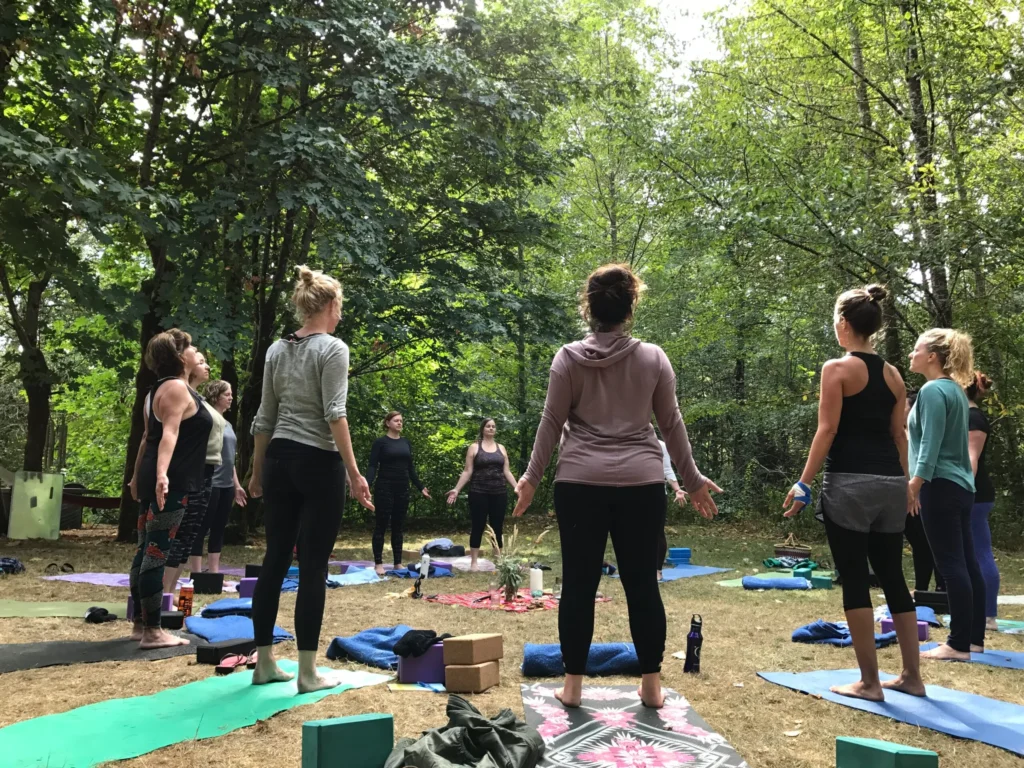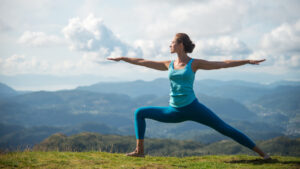For most of our existence as humans, spanning around 200,000 years, we lived as nomadic hunters and gatherers, deeply immersed in nature. Our evolution is intertwined with the natural world, influencing and shaping us in ways we may not always recognize. Today, stepping into nature—whether it’s a leisurely walk through a meadow, a hike in the forest, or paddling on a lake—brings us back to our roots. These simple activities ground us in the present moment, offering a sensory-rich environment that nourishes both our minds and bodies.
Research has recently highlighted a growing condition known as “nature deficit disorder,” a term coined by author Richard Louv. It suggests that many of the mental health issues we face today—such as depression, anxiety, insomnia, and even attention deficit disorders—are symptoms of our disconnection from the natural world. In Japan, the concept of shinrin-yoku, or “forest bathing,” was developed in the 1980s as a therapeutic practice to restore balance by reconnecting people with nature. Forests, especially those abundant in conifers, release phytoncides—natural compounds that have been shown to lower blood pressure, reduce stress hormones, and enhance immune function. Remarkably, these benefits can last for up to a month after spending just a couple of hours in the forest.
At Kripalu, situated amidst a forest filled with white pine and hemlock trees, we are lucky enough to benefit from these healing effects while participating in our outdoor yoga programs. The combination of yoga and nature blurs the boundaries between the two, offering a holistic experience that nurtures both body and spirit. Imagine walking down a wooded path, pausing under the shade of a tall hemlock tree to practice Balancing Half Moon or Tree Pose. As you open up your body and stretch your intercostal muscles, you’re not just expanding your chest—you’re inhaling the healing air of the forest, rich in phytoncides.

Yoga in nature offers unique opportunities to engage with the elements. Picture yourself practicing Sun Breaths or enjoying a floating meditation in a kayak, gently gliding across the waters of Lake Mahkeenac. As the breeze guides you across the lake, the practice becomes not just a physical movement, but a fluid experience that harmonizes with the natural world. This connection between yoga and nature fosters a sense of calm, heightened awareness, and a deeper connection to our ancestral roots.
This integration of nature and yoga also reignites a sense of playfulness that many of us lose as we age. As adults, we often forget the importance of play in our lives. However, play has been scientifically proven to relieve stress, enhance creativity, stimulate the formation of new neural pathways, and foster empathy and connection. The carefree, playful energy of nature allows us to rediscover this essential part of ourselves, encouraging a lighter, more joyful approach to life.
By transitioning from a traditional indoor yoga studio to the expansive outdoors—whether it’s on a kayak, paddleboard, or simply in the forest—yoga becomes not just a practice, but a lifestyle. It extends beyond the mat, reminding us that our connection to the earth is a vital part of who we are. Practicing in nature makes yoga more accessible, more playful, and more integrated with our everyday lives.

Furthermore, this experience highlights how seamlessly yoga can transition into any environment, including the natural world. The natural setting amplifies the benefits of the practice, not only physically but mentally and emotionally. Each breath taken in the fresh air, each pose performed on the earth, creates a sense of unity with our surroundings, reinforcing the timeless relationship between humans and nature.
Finally, outdoor yoga serves as a powerful reminder of our deep-rooted connection to the world around us. In our modern, fast-paced lives, it’s easy to forget that we are part of something much larger. Practicing yoga in nature reconnects us with the earth, the elements, and our own inner selves. It teaches us that this connection isn’t just a benefit—it’s essential for our well-being, creativity, and sense of purpose.





